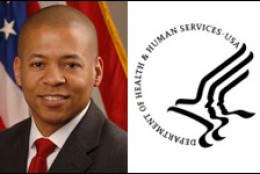Information sharing
-
In part 2 of Federal News Radio's special report, The Obama Impact: Evaluating the Last Four Years, we examine the success and change brought by five technology initiatives. We rated three as effective, one as having made some progress, but more is needed, and a fifth as ineffective.
September 18, 2012 -
Damon Davis, special assistant at HHS' Office of the National Coordinator for Health Information Technology, talks about how the BlueButton Initiative is improving healthcare IT at his agency. August 21, 2012
August 21, 2012 -
Susan Swart left the State Department for the International Monetary Fund CIO. She reflects on her successes and the change in federal technology.
August 02, 2012 -
The Federal Energy Regulatory Commission said it needs authority to enforce cybersecurity standards. The agency also wants Congress to expand its jurisdiction over electric grid operators.
July 19, 2012 -
The Transportation Security Administration already shares intelligence it collects with airports. Now a House bill would expand TSA's intel sharing to local mass transit systems as well.
June 22, 2012 -
Debora Plunkett, the director of the National Security Agency's Information Assurance Directorate, said there is good news and bad news when it comes to protecting the U.S. from cyber threats on a daily basis. In an exclusive interview for Federal News Radio's Agency of the Month program, Plunkett said getting the nation's networks to a higher level of security is multifold.
June 11, 2012 -
Secretary Leon Panetta and Secretary Eric Shinseki announce an expansion in 2014 of initial capability of the joint electronic health record to two more sites.
May 22, 2012 -
The Arizona senator sent the third in a series of letters to Gen. Keith Alexander trying to explain why DoD, not DHS, should be in charge of defending critical infrastructure from cyber attacks. He said the administration's approach would create another layer of bureaucracy and slow down responses to threats.
May 10, 2012 -
Gen. Keith Alexander said a recent cyber exercise is the first time the military showed it can do offensive and defensive capabilities at the same time, by the same team. This was part of Alexander's answers to questions from Sen. John McCain.
May 04, 2012 -
The government is working with a cobbled-together set of authorities and responsibilities when it comes to protecting networks from cyber threats, a top Homeland Security Department cyber official said Wednesday. Congress needs to act soon to update the nation's cybersecurity posture, he said.
May 03, 2012 -
The House is expected to vote on — and pass — the bipartisan Digital Accountability and Transparency Act, which aims to save taxpayer money by tracking spending by federal agencies.
April 25, 2012 -
A pilot program DoD established to share cyber threat information between the NSA and Defense companies will be made permanent and expanded to include approximately 200 companies in the coming months.
April 25, 2012 -
The administration has tried to get in front of the debate over the information sharing aspects of one of the cybersecurity bills up for debate in the House Thursday. Democratic lawmakers and industry groups expressed concern over the Cyber Intelligence Sharing and Protection Act (CISPA) arguing its provisions on what information is to be shared and with whom are too broad.
April 23, 2012 -
Reps. Mike Rogers (R-Mich.) and Dutch Ruppersberger (D-Md.) introduced legislation to make sharing of classified cyber threat information easier between the government and the private sector. The bill builds on DoD's Defense Industrial Base pilot to share data about vulnerabilities. DoD plans to expand the DIB pilot to more than 200 companies in the coming year.
April 11, 2012 -
The Insider Threat Task Force expects to submit its national plan to the White House in the next few months. The Defense Department will use its secure identity cards to stop unauthorized access to data and systems.
April 05, 2012




